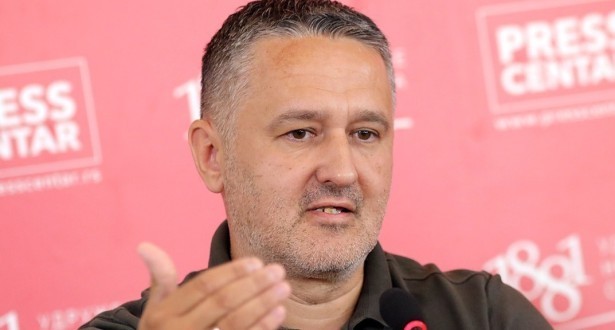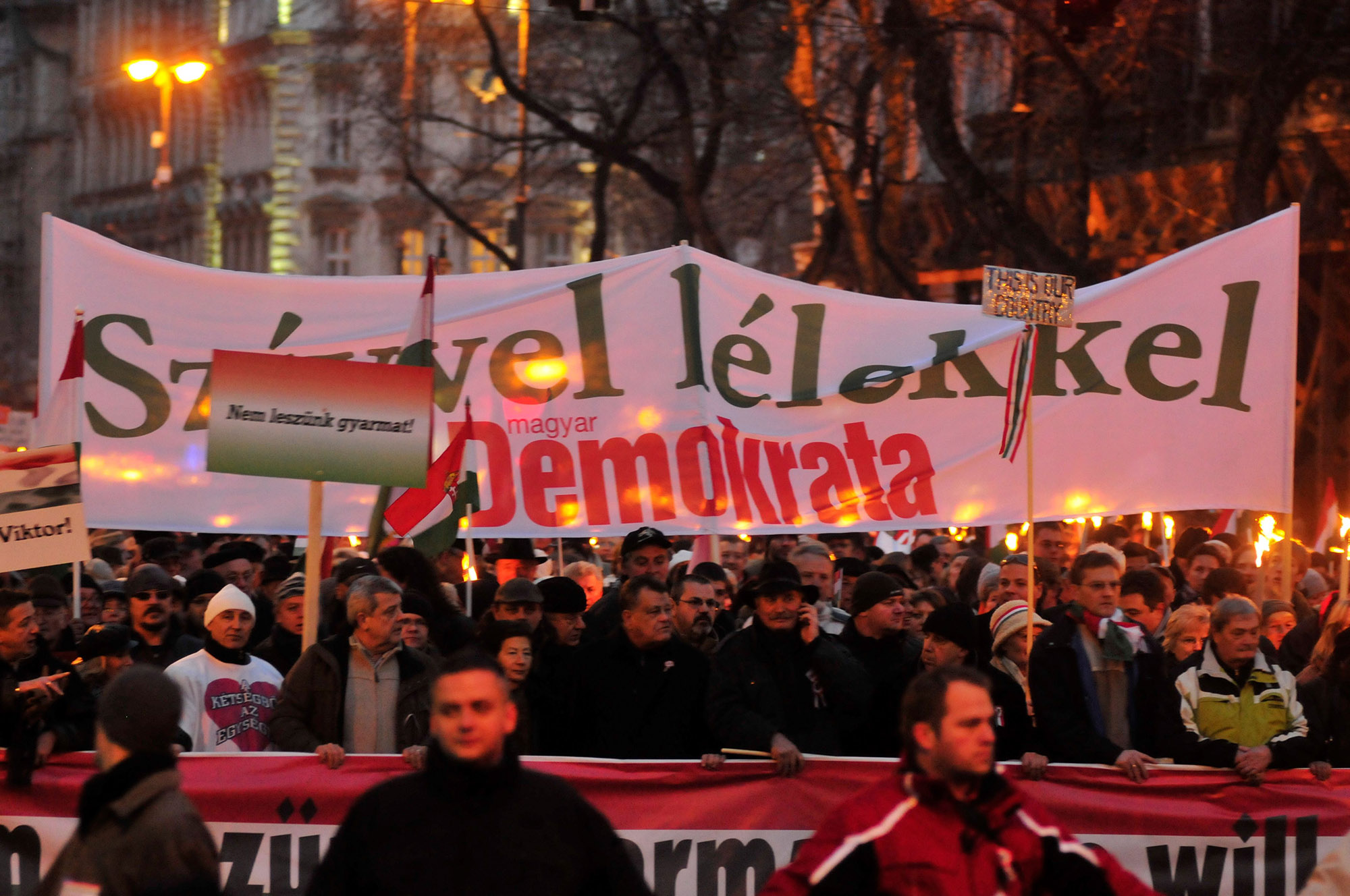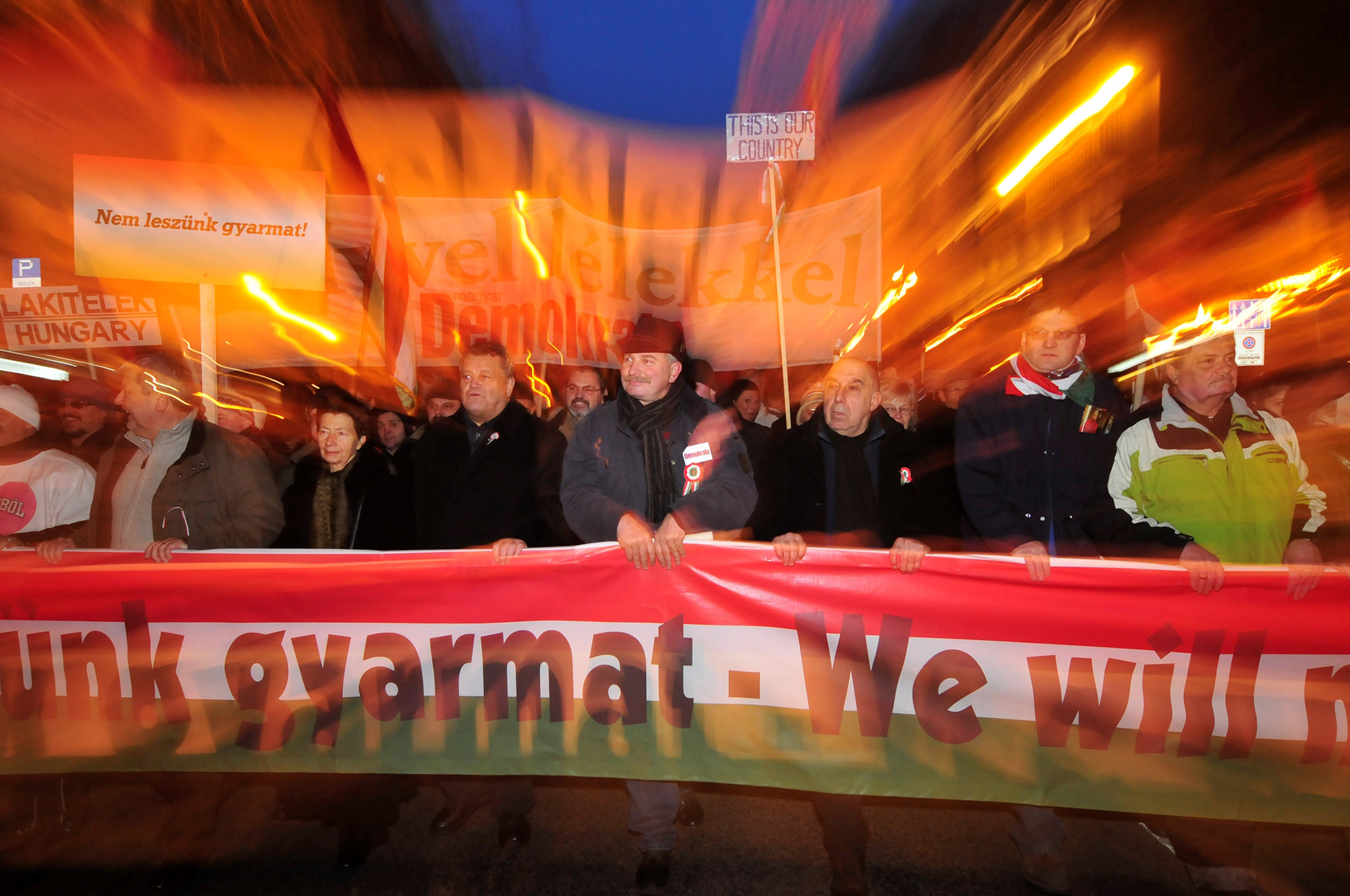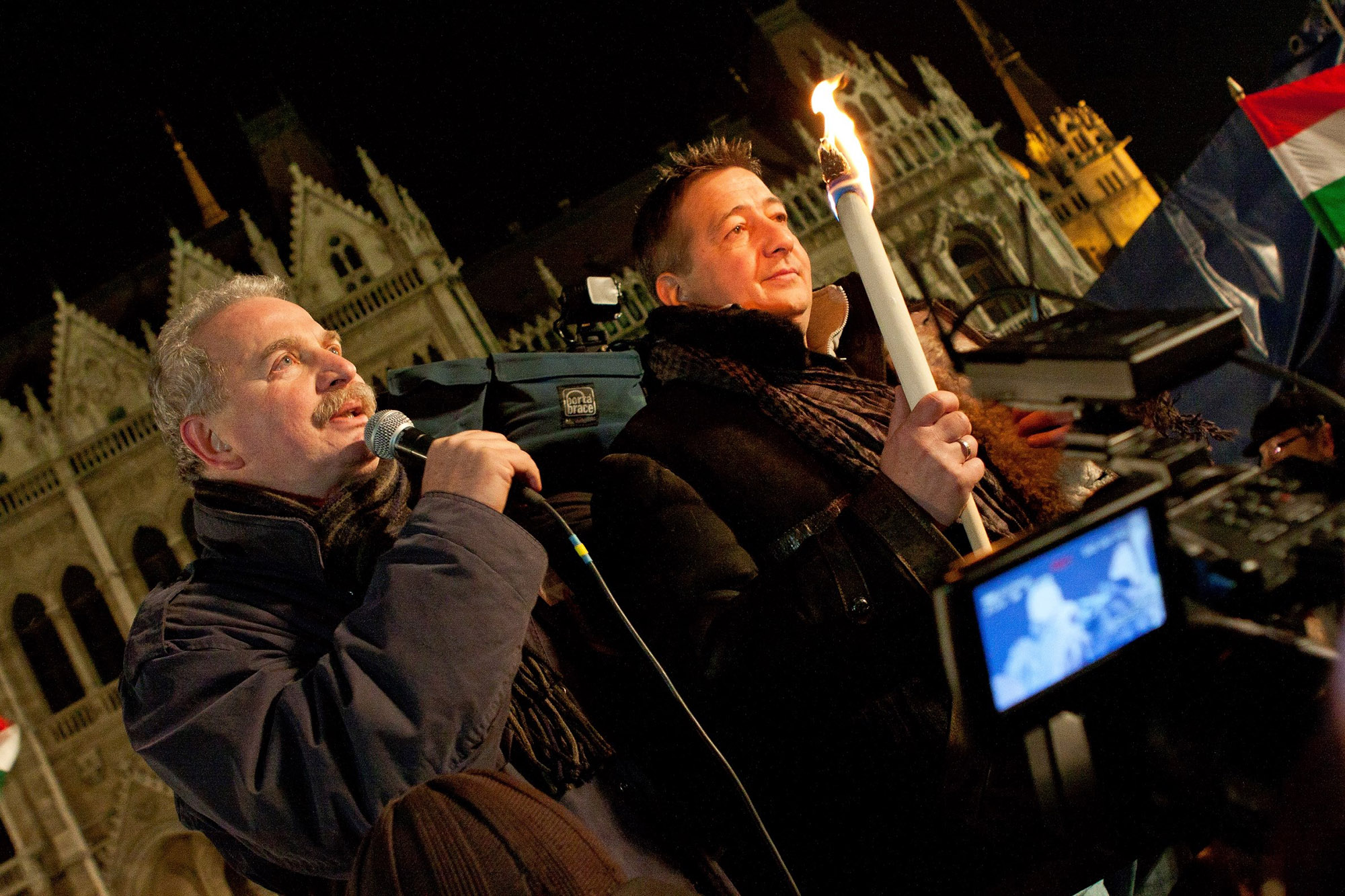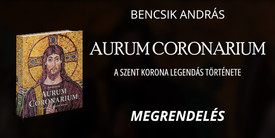The pendulum has swung to the point of insanity
The European identity, which is the sum of the identities of the nations that live here, must be defended. And if necessary, we must liberate European nations, country by country. An interview by Branko Zujovic on Western civilisation, Serbian-Hungarian relations, the Belt and Road, China, Russia, EU enlargement and the future of the world.
I never assumed that I would do a parallel interview with two interlocutors who are, at the same time, father and son. Serbia and Hungary have had the best relations in their history for more than ten years. The two countries, viewed from the Balkans, set a great and one might say historical precedent. For more than ten years, Belgrade and Budapest have maintained the best political, economic and all other relations at the highest point in their mutual history. That was the reason for me to conduct this interview with András Bencsik and his son Dávid Bencsik, who have a significant influence in informing the Hungarian public and are very well acquainted with Hungarian-Serbian relations.
Looking from the Serbian perspective, there is a certain discrepancy between Europe and the European Union. We all belong to Europe, but I am not sure that the European Union always serves Europe and Europeans. It often seems to us that there is a certain divergence. If the discrepancy we see from Serbia really exists, what needs to happen for the European Union to become Europe again?
Dávid Bencsik: The European Union was successful as long as it was an economic community. It was in everyone’s interest for more and more European countries to become members through integration. For the old it was to find new markets, especially surplus markets, and for the new it was to find new opportunities and to enter the world’s largest consumer market. If we were still an economic community today, there would be no question of enlargement being put on hold, of the Western Balkans and even Turkey – let us leave aside the familiar reasons – not becoming part of the Community. Europe has never been united, not even the Roman Empire managed to do what the Christian Democratic founding fathers accomplished after the Second World War. We can become Europe through the common interest, not through forced political union and continentalisation, but through the common pursuit of our diverse interests, the expansion of prosperity and security. What is happening today is that the bureaucrats in the EU institutions, gradually set up by the heads of state of the EU member states, have begun to outsource the management of the continent and organise their own power over the heads and behind the backs of their bosses, with support from overseas, and are now disturbed by the handful of remaining competences and powers that the heads of member states still have today. This liberal globalist elite, which no one has ever elevated to the status of a ruling power, must be driven from power and a return to mutually beneficial cooperation between nation states must be restored.
András Bencsik: The idea of the European Union was based on a cruel fact: over the past centuries, European nations have fought bloody wars against each other, causing the death and suffering of millions. The Union has brought the possibility of peace, that is its greatest value. But there has been no talk of a continental state, a pseudo-empire. What must happen? The European identity, which is the sum of the identities of the nations that live here, must be defended. And if necessary, we must liberate European nations, country by country, from the oppression of Euro-Atlantic hegemony.
Europeans seem to be giving up on themselves: European nations are disappearing demographically, European families no longer have children, Europeans are renouncing their traditions. The issue of freedom and rights of sexual minorities, or various other minorities in general, dominates over the issue of family and tradition, that is, what we really are. On the other hand, in Western Europe, and even in the European North, there are more and more immigrants who, even after two or three generations, do not become French, German or Swedish, but remain firmly rooted in their non-European cultures, which they install in Europe. Moreover, the influx of migrants has become a very active policy of the European Union in the last ten years. How did Hungary manage to become an exception to this policy?
Dávid Bencsik: The world has always been in a constant state of flux, our societies have gone through many periods of development over the centuries, millennia, but this is the first time that we have had a crisis of vitality, which I believe has been caused by replacing faith in God and morality with rampant consumerism. Today we consume not only things, but also human relationships. Today it is embarrassing for a young person not to have had a sexual relationship in their mid to late twenties, that is, to be a virgin wife or husband. Tomorrow it will be embarrassing not to have had a same-sex experience in your late twenties. For young people in the West, the concept of the family is a completely empty and incomprehensible anachronism, because they live by a concept of sexual freedom, of unlimited consumption of pleasure, of young people trying out intimate relationships with both boys and girls and questioning their own gender for the sake of fashion. This is also the message conveyed by the mainstream channels of Western civilisation, if we think of Hollywood or Disney films. Today, in the big cities of the West, the public discourse is that a baby emits 2-3 tonnes of carbon dioxide a year, and this is shared on social media by intelligent, serious people – childless, of course. A child used to be a blessing. It is a nice gesture on your part to call Hungary an exception, because these almost unstoppable destructive forces are bombarding our young people with gender and other madness, ideologies, the total dissolution of the sanctity of intimacy and the propagation of sexual freedom. Our government, led by Prime Minister Viktor Orbán, is providing unique and incredible support for families, but unfortunately even that is not enough. We choose children and family support over illegal North African migrants, but Brussels is crucifying our country for it. The millions of migrants artificially directed to Western Europe are rewriting the history of Europe; demographic changes are already taking over Western Europe, which has abandoned faith and given up on children. In this way history will repeat itself and Eastern Europe will survive and remain homogeneous, as it did after the collapse of the Roman Empire.
András Bencsik: I’m a little more cloudy. I think the breakdown of the institution of the family, and within it the institution of motherhood, is a civilisational phenomenon. It is equally prevalent in the East and the West. South Korea has such a serious childlessness problem that unless something is done, the population there will die out. And I think they will find an anwer. Now individual selfishness and unbridled stupidity, think of the various gender transformations, but in time all pendulums will swing back and, as has happened before, another paradigm shift will come and the institution of the family will be revalued. Those nations that will still exist will themselves begin to ascend. But those that will have died out by then will not be rewarded. We, here at the eastern tip of Central Europe, can still afford to say honestly that we want to remain as Hungarians – as Serbs – in our homeland.
It seems that Serbia and Hungary are a good example of how neighbors, after about a century and a half, can subordinate their relations to a common future. Are the relations between Serbia and Hungary in the 21st century a model that can be applied to other countries, primarily those in the Balkans, or as they like to say in Brussels: in Southeast Europe?
Dávid Bencsik: I can confirm this with a personal example. Viktor Orbán appointed me Deputy State Secretary at the Ministry of Agriculture with effect from 16 February 2021. As I was in charge of the international development and cooperation portfolio, I travelled a lot. I was in Belgrade or in Vojvodina, your region, once every month or two months because we had so many joint developments. I visited Serbia for the first time in 2021 with mixed feelings because I didn’t know what to expect, but after a year I felt almost at home in Belgrade or in the countryside of Subotica. Today I can’t imagine my life without Serbian kajmak and ajvar or sremska sausage, my only problem is that I prefer rakija, dunja above all, to pálinka and I’ll be hunted down by the producers here for that one day. The secret lies in reciprocity, in getting to know, understand and like each other. If we both have an interest in making things better for ourselves, we will fight together. Serbs and Hungarians can fight together, just remember 1456, when in Belgrade, or as we called it, in Nándorfehérvár, Hunyadi and Brankovic faced the Ottoman Empire together and defeated them with joint force. We have something to build on and it is the task of all peoples seeking friendship to find common denominators, common interests and to bury the hatchet. It is better to be loved than to be hated.
András Bencsik: I’m not a historian, but it seems to me that whenever Serbs and Hungarians have fought each other, there has always been pressure from one or more great powers in the background. We have suffered a lot over the centuries, and this suffering was undeserved. And those who are full of wounds tend to blame those who may be just as full of wounds as themselves. But in recent decades we have found that when the pressure on us is eased, or we are better able to defend ourselves against it, we find much more sympathy in each other than we might think. I am proud that the Hungarian Prime Minister is proud that when NATO started bombing Serbia without a declaration of war and the US President wanted to use the southern part of Hungary as a base, Viktor Orbán said no. Then I went to the Yugoslav Embassy – that was still the name – and asked for a badge with a crosshair on it to put on my jacket. It said: TARGET. I wore it for months, touched by the pride and irony that emanated from the Serbian soul. It was good to identify with it. And it is no different today.
We in Serbia have the most painful problem, and that is the aggressive effort of the USA to turn our southern province, inhabited by the Albanian national community, into an independent Albanian state. At the same time, I will be very self-critical, Serbs know very little about their Albanian neighbors, even though they are in historical disagreement with them. It is the same with the knowledge of the highly valued Hungarian culture. I live in a town right on the Hungarian border, so I know something about it. Should the initial moment of establishing good, even excellent, interstate relations be supplemented by an essential introduction to cultures? Until yesterday, the issue of multi-ethnicity and multiculturalism was imposed on us in Serbia as an ideological issue, not as a practical and life issue. How can our two cultures get to know each other better in a realistic way? This, therefore, to avoid historical episodes that happened a century and a half or two ago.
Dávid Bencsik: Let’s make friends! Let’s have a Serbian festival in Buda Castle and a Hungarian festival in Belgrade, bringing with us our gastronomic wonders and our folklore traditions. Cat-eyed Hungarian girls are famously beautiful, and legends abound about the beauty of almond-eyed Serbian girls, so let our young people get to know each other, we live so close. The people of the endless Hungarian wastelands have a sincere and embracing desire for freedom and joie de vivre that is inviting, and Serbian virtue is full of energy, life, joy and passion. What a complement! A favourite romantic spot for Hungarians is Szentendre, near Budapest on the banks of the Danube, which was founded by Serbs in the 14th century. We Hungarians are fans of Serbian traditions, flavours and virtues. What if we were aware of this? There are, of course, sensitive issues, such as the southern province of Serbia, which is inhabited by Albanians, but there are also Hungarians living in Serbia who were brought there at the end of the First World War by the Treaty of Trianon, which cruelly punished our country. We used to call this area Southland. The Serbian-Hungarian reconciliation and friendship will create a new situation. Our Hungarian compatriots now live well in Serbia, they have their own political representation, they even perform governmental functions in Belgrade and are respected. I know several Hungarian politicians in your government, all of them fluent in Serbian and Hungarian, and they are a bridge between our peoples and our countries. Bálint Pásztor, Attila Juhász, Róbert Jaksa or my friend Árpád Fremond and many other distinguished citizens of Hungarian nationality are strengthening Serbia in Belgrade.
András Bencsik: I also believe that if we know each other, if we have a living relationship in everyday life, if we know each other’s joys and sorrows, if we can talk with understanding even about the pain of the past, then no one can set us against each other. Getting to know each other brings sympathy, and sympathy brings affection. There are many settlements along the Danube that preserve the memory of the Serbs who lived there. Not only Szentendre, but also Ráckeve, for example, which commemorates you in your name.
I think the previous question is a good introduction to a related but much broader question: how can sovereign European nations exist and be effective in a different European community or a different European Union without conflict between them?
Dávid Bencsik: I maintain that we need to develop an economic community rather than a political union and integrate the whole of Europe, which is a geographical issue. This enlargement should start with Serbia and Georgia, and then all the other countries. On the basis of reciprocity and by removing borders, we will achieve peace and peaceful coexistence. When everyone has the interests of the other’s well-being and development at heart, we will have reached our goal. When Hungarians are rooting for the Serbs to catch up, when Serbs are rooting for the success of their Albanian neighbours, then it will be a beautiful world.
András Bencsik: The European Union is facing serious crises as tragically low fertility rates and the resulting void filled by migration reshape the West. We must hope that this crisis will eventually be resolved in a fundamentally peaceful way. But for this to happen, it is essential that states, whether within or outside the EU, retain their identity. A so-called ‘white migration’ has already begun, with families from Western Europe settling in the East, choosing security and peace over growing fear. As long as we exist and keep our peace, there is hope.
Viktor Orban once called on Serbia to take a central European course in politics (I’m paraphrasing what he mentioned). To me, it sounded like an invitation to get out of the political quagmire. In what way could the “community of the common future” of Hungary, Slovakia and Serbia be realized, if I can borrow that convenient term from the Chinese political dictionary?
Dávid Bencsik: All I can think of is that we must continue with integration, with the enlargement of the European Union. It is not you who are in a political quagmire, it is the European cart that is stuck in an ideological quagmire. The conditions for a common future must be created. For the time being, this is being done through the European Union, because there are no other alternatives in Europe. The European Union is seriously ill, but the good news is that there is a cure for the problem, only the specialists around the patient do not want the patient to have it, because it is in their interest that the patient should remain ill for a long time. Our task is to remove the malignant doctors one by one and cure the patient. Europe is shaking itself and getting up. And then it’s your turn!
András Bencsik: I think Viktor Orbán was talking about Central Europe in the narrow sense of the word, which includes the Balkans. Today Serbia is being punished, but this is the will of the United States of America and the deep state powers that continue to profit from the division of this region. Our common future is the common hope of some 300-400 million people: a Europe that takes responsibility for its own existence and is not in servitude to any power.
Apart from Serbia, Hungary also cooperates very well with Republika Srpska in BiH. How do you evaluate that cooperation?
Dávid Bencsik: Hungary would do well to make friends. We’ve almost been wiped out many times in the last thousand years because we didn’t have friends. Friendship promotes knowledge, understanding and therefore peace in the region.
András Bencsik: We have neither the right nor the authority to intervene in disputes about which we have opinions, but which have arisen from the will of the great powers already mentioned. But what we can do today is to keep talking about peace.
David, in Beijing, you had a very notable presentation at the Belt and Road Media Cooperation Forum. Why is China important to European nations?
Dávid Bencsik: The spirit of the Belt and Road is what Europe needs now. A new community for the common future of mankind. China has a much longer history than Europe and is philosophically richer than us in many ways that the world should know. China can build a bridge between our civilisations for the benefit of all mankind, what President Xi Jinping also calls a community for the common future of mankind. In the 16th and 17th centuries, or perhaps even earlier, China was the most advanced civilisation on the planet, even compared to European civilisation. Unfortunately for them, the British Empire, with its insatiable appetite, arrived in the mid-18th century and kicked the Ming-era porcelain vase with its muddy boots and pirate mentality. This is known in history books as the Opium War, but in China it is known as the Great Humiliation, because Chinese society, with its higher level of civilisation, was humiliated by a sophisticated but arrogant European power. This aggressive British centre of power was joined by the United States with the death of President Franklin D. Roosevelt in 1945 and the collaboration of President Harry S. Truman, who succeeded him, and has survived to the present day. China, on the other hand, offers a new beginning, a new paradigm. The emergence and recognition of which a two hundred year old nation, still holding the world in its grip, is trying to delay and delay at all costs, with the powerful support of a two thousand year old culture dependent on it, but the truth is making its way, like water. The world needs balance and peace, and China offers it.
András Bencsik: Yes, a multipolar world cannot be prevented or slowed down. The wise grasp every friendly hand with friendship.
What should the cooperation of sovereign European nations with China look like in the future?
Dávid Bencsik: The world needs balance and peace, and China offers it. It does not want Europe and the other continents to play a subordinate role, as the Anglo-Saxon hegemony has enslaved, humiliated and plundered the world for centuries. A new community can be built for the common future of humanity, but the world must fight for this chance. Change does not come for free and the Anglo-Saxon centre of power, still dominant today, is very strong. It is against this backdrop that we must be able to build.
András Bencsik: China has never fought a war of conquest. They believe in trade, cooperation, innovation and organic development. And they are happy to work with anyone who thinks like them.
You are the editor(s)-in-chief of an influential weekly in Budapest. Of course, there is also the visited online edition of Hungarian Democrat. What challenges does the Hungarian public face?
András Bencsik: In Hungary, fortunately, there is a stronger camp of supporters of the sovereign nation-state who, knowing our history, do their utmost to promote peace, because wars have caused us immeasurable damage. Fortunately, our editorial team is not alone in this spirit.
Hungary has not given up cooperation with Russia, even though it is a member of the European Union and NATO. Why is Russia, a country with which Hungary also had painful historical episodes in the 19th and 20th centuries, important for Hungary itself, but also for Europe?
Dávid Bencsik: Russia is now the number one enemy of the mainstream media, which propagate the views of Western, mainly Washington globalist circles. This is a tragedy for Europe, because if European industrial intelligence and engineering creativity could be freely linked to the endless and affordable Russian energy resources, it would create a new quality in the world and also contribute to Europe’s liberation from the humiliating influence of the United States. We could once again have a voice in the world. And when everyone in the world is rooting for the peaceful economic integration of Russia, which is tied to Europe by a thousand threads, it will be history, because Russia has been artificially removed from Europe by overseas surgeons, and these wounds and scars will never heal. Dostoevsky rightly said: ‘We have all come out of Gogol’s mantle’.
András Bencsik: I could go on. Chekhov, Bulgakov, Yesenin, Pushkin, Andrey Ryublyov, Mussorgsky, Tchaikovsky and so on… Russia, our neighbour, is just as much a part of Europe, because Europe extends to the Urals. We have had bitter experiences with the Russians, but we have also had many heart-warming experiences, to say the least, one of our Kings of House Árpád brought a Russian wife, Princess Anastasia, from Kiev, and Prince Franz Rákóczi II, when he was collecting money and arms for the march for freedom against the Austrian invaders, negotiated with Tsar Peter the Great. In other words, there is no need to keep our wounds open, but at the same time, a huge country offers a fantastic opportunity to any well-meaning neighbour. Why not take advantage of it?
